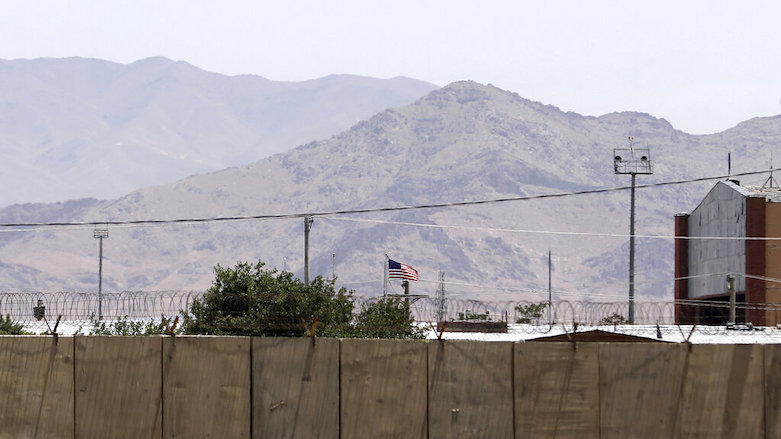Biden reaffirms commitment to fight against terrorism in Middle East as US leaves Afghanistan

WASHINGTON, DC (Kurdistan 24) – US President Joe Biden gave a major speech on Thursday, followed by a brief press conference, in which he defended and explained his decision to withdraw US forces from Afghanistan and end the 20-year-long war there.
At the same time, Biden affirmed that the US would continue its fight elsewhere against terrorism—just not in Afghanistan.
“Today, the terrorist threat has metastasized beyond Afghanistan.” Biden stated. “So, we are repositioning our resources and adapting our counterterrorism posture to meet the threats where they are now significantly higher: in South Asia, the Middle East, and Africa.”
That is good news for the Kurds. “The Middle East” in Biden’s remark means the fight against ISIS in Iraq and Syria.
The US has repeatedly committed itself to continuing that fight. Most recently, that was stated by the Secretary of Defense Lloyd Austin, when he spoke last month to a meeting of NATO Foreign and Defense Ministers.
Read More: US Defense Secretary to NATO: US ‘firmly committed' to defeat of ISIS
And, before that, in late April, the head of CENTCOM, Gen. Frank McKenzie said much the same.
Read More: CENTCOM: US has 'no plans' to draw down forces in Iraq; Baghdad wants us to stay
Why is Afghanistan a Uniquely Safe Haven for al-Qaida? – The Question No One Can Answer
Biden was peppered with hostile questions from journalists—but not one offered any explanation, in the course of their questions, as to why Afghanistan was such sacred territory for terrorists.
Indeed, that is the very question that Sen. Angus King, an Independent from Maine, asked Gen. Austin “Scott” Miller, the current US commander in Afghanistan, three years ago—in Miller’s June 2018 confirmation hearing.
Like the journalists hounding Biden on Thursday, Miller could not answer that question either.
Noting that since the September 11, 2001, attacks, the US has considered Afghanistan a “safe haven” for al-Qaida, Senator King asked General Miller, “What makes Afghanistan so peculiarly safe as opposed to Pakistan, Iran, Iraq, Africa, [or] Syria?”
“I am genuinely trying to understand why all the blood and treasure goes into one country if the enemy can simply set up a tent city in the middle of the Sahel or somewhere in Pakistan or somewhere in Iran?” he continued.
“Why is it Afghanistan is the center? You are talking about a mobile enemy. Most of the people that plotted September 11th were not from Afghanistan. They just used the land,” King noted.
Miller responded that Afghanistan was an “ungoverned space,” but, of course, not the only ungoverned space in a Muslim country, he also acknowledged.
“We had 110,000 troops there,” King continued, as he questioned Miller. “Now we have 15,000. What is going to be different?”
Those were essentially the same points that Biden made on Thursday.
Biden also explained that he was following the agreement that the previous administration had made with the Taliban, which had called for US troops to leave Afghanistan by May. Biden has just extended that deadline to the twentieth anniversary of the attacks that brought the US into Afghanistan.
It is worth noting that the George W. Bush administration believed that it had won the conflict in Afghanistan in December 2001—after just three months. Instead, Afghanistan became America’s longest war.
That was certainly a very serious misunderstanding of the situation.
This reporter served as a cultural adviser to the US Army in Afghanistan from 2011 to 2013 and held the same doubts then as King expressed in 2018 and Biden articulated on Thursday.
“What are we doing here?” was my question. Afghanistan is a remote, undeveloped country. It is not strategic in any sense—as opposed, for example, to Iraq and Syria.
Moreover, the key figures involved in the 9/11 attacks were not found in Afghanistan—rather they were captured or killed in Pakistan! That includes the titular head of al-Qaida, Osama bin Laden; Khalid Sheikh Mohammed, the 9/11 mastermind, and Ammar al-Baluchi (aka Ali Abdul Aziz Ali), a close associate of Mohammed, who had been based in Dubai, and helped train the hijackers on how to behave, when they came to the US.
Both Mohammed and Baluchi are prisoners at the US detention facility at Guantanamo. They were both captured in 2003, but they have yet to stand trial.
The decision to leave Afghanistan is “fairly popular” among Americans, as The Washington Post noted. In a public opinion survey taken in late May, 62 percent of the people polled approved of the decision to withdraw; 29 percent opposed it; and nine percent had no opinion.